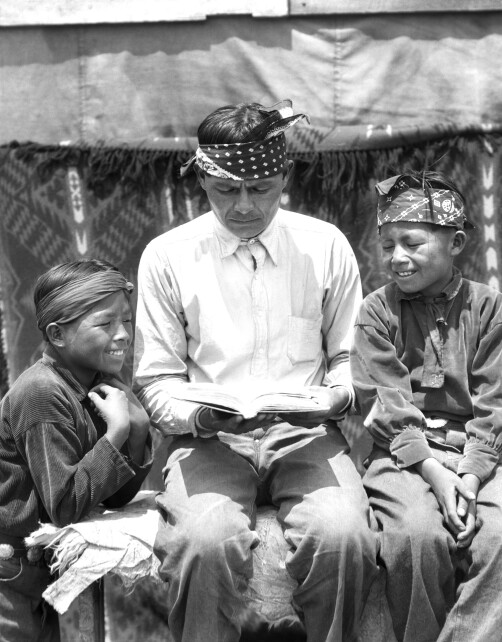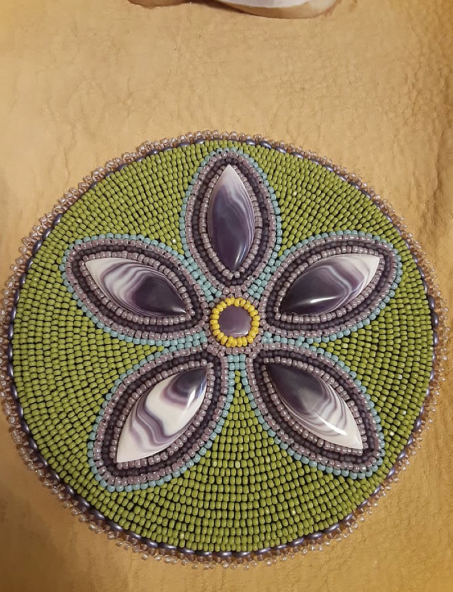A Man Had Two Sons
For Sunday, 27 September 2020: Matthew 21:23-32
23 When [Jesus] entered the temple, the chief priests and the elders of the people came to him as he was teaching, and said, “By what authority are you doing these things, and who gave you this authority?” 24 Jesus said to them, “I will also ask you one question; if you tell me the answer, then I will also tell you by what authority I do these things. 25 Did the baptism of John come from heaven, or was it of human origin?” And they argued with one another, “If we say, ‘From heaven,’ he will say to us, ‘Why then did you not believe him?’ 26 But if we say, ‘Of human origin,’ we are afraid of the crowd; for all regard John as a prophet.” 27 So they answered Jesus, “We do not know.” And he said to them, “Neither will I tell you by what authority I am doing these things.
28 “What do you think? A man had two sons; he went to the first and said, ‘Son, go and work in the vineyard today.’ 29 He answered, ‘I will not’; but later he changed his mind and went. 30 The fatherwent to the second and said the same; and he answered, ‘I go, sir’; but he did not go. 31 Which of the two did the will of his father?” They said, “The first.” Jesus said to them, “Truly I tell you, the tax collectors and the prostitutes are going into the kingdom of God ahead of you. 32 For John came to you in the way of righteousness and you did not believe him, but the tax collectors and the prostitutes believed him; and even after you saw it, you did not change your minds and believe him.

I recently saw a meme on social media that sarcastically proclaimed: “Wow, your Facebook post about politics has changed my mind and my vote … said no one EVER!” While changing one’s mind due to social media may be a near hopeless occurrence, changing one’s mind is of utmost importance in the portion of today’s reading known as the “Parable of the Two Sons,” especially as it relates to the issue of regret, starting over, and walking in a new direction. The father had two sons whom he directed to work in the family enterprise. One son at first refused, but later changed his mind and complied with the father’s command; the second initially agreed but then changed his mind and neglected the father’s order. Which decision is preferable? Jesus’ response: to do the will of the father, no matter how long it takes to orient one’s mind to act.
One understanding of the “tax collectors and prostitutes” in Jesus’ story is that they represent those people who lead lives that are disobedient to God due to their treacherous, exploitative, and immoral actions. They are headed in the wrong direction in terms of the Creator’s plan and divine purpose for their existence. They journey on a road that leads to death, but God wants them to change their minds, to turn around, and to begin to walk in a different direction on a path with the trail-blazer Jesus, who is both a traveling companion and is himself “the way, and the truth, and the life” (John 14:6). They are the first son in the story who change their minds and eventually go to the vineyard and receive the father’s approval.
The “chief priests and the elders of the people,” the religious authorities who are fearful of looking weak and very much enjoy their privilege and status as respected leaders of the establishment might well be considered the second son. They waver in their commitments, are fearful of being wrong, and although they feel superior to many in the community are unwilling to change their behaviors regardless of the evidence in front of them. They see no need for a change of mind to result in a change of heart and behavior. They might have started out well but have since chosen to walk the path that leads to death.
God has granted us tremendous freedom in acting as moral agents in making decisions and changing our minds for good or for ill. What we decide really does matter. There is a teaching in Native America about the Seventh Generation. According to the Great Law of the Haudenosaunee of the Iroquois Confederacy, thought by many to be among the oldest participatory democracies in the world, is taught: “In our every deliberation, we must consider the impact of our decisions on the next seven generations.” That is, whatever we decide today should take into consideration how it will affect seven generations of our descendants coming after us. That is long term strategic planning indeed and wisdom sorely needed in our immediate-gratification culture!
The Creator is calling us to work in the vineyard today, but the Holy One leaves the choice about whether to do so in our hands. Regardless of our past, we have an opportunity to change our minds and to walk in a new direction that leads to life. Today, we make choices that impact not only ourselves, our children, and grandchildren but generations to come. Now is the time to join the tax collectors and prostitutes in the kingdom of God. Even if we have said “no” before, there is still time to say “yes.”


